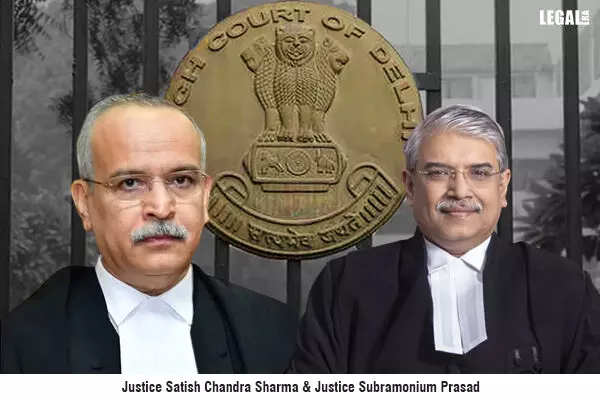- Home
- News
- Articles+
- Aerospace
- Agriculture
- Alternate Dispute Resolution
- Banking and Finance
- Bankruptcy
- Book Review
- Bribery & Corruption
- Commercial Litigation
- Competition Law
- Conference Reports
- Consumer Products
- Contract
- Corporate Governance
- Corporate Law
- Covid-19
- Cryptocurrency
- Cybersecurity
- Data Protection
- Defence
- Digital Economy
- E-commerce
- Employment Law
- Energy and Natural Resources
- Entertainment and Sports Law
- Environmental Law
- FDI
- Food and Beverage
- Health Care
- IBC Diaries
- Insurance Law
- Intellectual Property
- International Law
- Know the Law
- Labour Laws
- Litigation
- Litigation Funding
- Manufacturing
- Mergers & Acquisitions
- NFTs
- Privacy
- Private Equity
- Project Finance
- Real Estate
- Risk and Compliance
- Technology Media and Telecom
- Tributes
- Zoom In
- Take On Board
- In Focus
- Law & Policy and Regulation
- IP & Tech Era
- Viewpoint
- Arbitration & Mediation
- Tax
- Student Corner
- AI
- ESG
- Gaming
- Inclusion & Diversity
- Law Firms
- In-House
- Rankings
- E-Magazine
- Legal Era TV
- Events
- News
- Articles
- Aerospace
- Agriculture
- Alternate Dispute Resolution
- Banking and Finance
- Bankruptcy
- Book Review
- Bribery & Corruption
- Commercial Litigation
- Competition Law
- Conference Reports
- Consumer Products
- Contract
- Corporate Governance
- Corporate Law
- Covid-19
- Cryptocurrency
- Cybersecurity
- Data Protection
- Defence
- Digital Economy
- E-commerce
- Employment Law
- Energy and Natural Resources
- Entertainment and Sports Law
- Environmental Law
- FDI
- Food and Beverage
- Health Care
- IBC Diaries
- Insurance Law
- Intellectual Property
- International Law
- Know the Law
- Labour Laws
- Litigation
- Litigation Funding
- Manufacturing
- Mergers & Acquisitions
- NFTs
- Privacy
- Private Equity
- Project Finance
- Real Estate
- Risk and Compliance
- Technology Media and Telecom
- Tributes
- Zoom In
- Take On Board
- In Focus
- Law & Policy and Regulation
- IP & Tech Era
- Viewpoint
- Arbitration & Mediation
- Tax
- Student Corner
- AI
- ESG
- Gaming
- Inclusion & Diversity
- Law Firms
- In-House
- Rankings
- E-Magazine
- Legal Era TV
- Events
Delhi High Court notice to Central and Delhi governments on a PIL

Delhi High Court notice to Central and Delhi governments on a PIL
The Delhi High Court has issued a notice to the Central and the Delhi government on a Public Interest Litigation (PIL).
The petition filed by Parveen Kumar Aggarwal, a lawyer, challenged the constitutional validity of the Court Fees (Delhi Amendment) Act, 2010, by which the Court Fees Act, 1870 was amended in its applicability to the National Capital Territory of Delhi.
(The amendment effectively provides that only half of the court fees will be refunded in cases where the parties settle their cases on their own or with the court's intervention).
A division bench of Chief Justice Satish Chandra Sharma and Justice Subramonium Prasad has sought responses from the Department of Law, Justice & Legislative Affairs, and the Ministry of Law & Justice.
The petition filed through advocates Abhishek Grover, Kajal Subodh Gupta, and Kunal Sharma assailed Section 16A of the Act as unconstitutional. It was done on the ground that Article 239AA of the Constitution of India does not empower the Delhi Legislative Assembly to effect an amendment of the Court Fees Act, 1870, which is Central legislation.
The plea stated that despite the introduction of Article 239AA, which provided for constituting a Legislative Assembly for Delhi, the national capital continues to be a Union Territory. Hence, the Parliament reigns supreme concerning the laws related to Delhi.
Consequently, in the case of Delhi, the subject-wise separation of the powers into Union, State, and Concurrent Lists in Schedule VII of the Indian Constitution was of no consequence.
The petition explained, "The expression 'Union Territory' refers to 'Delhi'. Therefore, Parliament alone has the competence to legislate on any matter concerning Delhi. It also provides for the Parliament's law-making powers on any matter for any UT if its falls under List II of Schedule VII of the Indian Constitution."
The petition further added that the amendment was against Article 14 of the Indian Constitution since Section 16A created two classes of people - one seeking refund under Section 16 of the Court Fees Act, 1870 and the other seeking a refund under Section 16A of the Court-Fees Act, 1870.
"The sole reason for such distinction is that in the case of the former the court refers the parties to a suit to any mode of settlement of dispute referred to in Section 89 of the Code of Civil Procedure, 1908, and in the latter, the parties settle their cases on their own or with the intervention of the court," the petition pointed out.
The petitioner contended that such a classification did not meet the criteria of reasonable classification based on the Intelligible Differentia under Article 14. It could lead to a situation wherein parties (who had settled their dispute through mediation or any other alternative dispute resolution method under CoCP), could claim a full refund of their court fees. Whereas parties, who settled their disputes privately by themselves or with the court's intervention, would be refunded only half of the court fees.
The plea added, "Such differential treatment between two similarly situated persons would constitute a violation of Article 14 of the Constitution of India and is, therefore, unconstitutional."
The case will be heard on 8 September 2022



